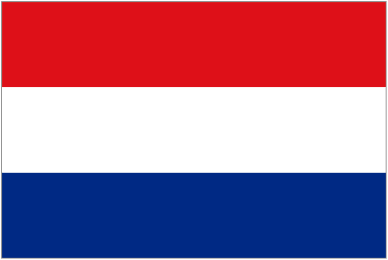



US judge in Nevada hands wild horse advocates rare victory in ruling on mustang management plans
In a rare legal victory for wild horse advocates, a judge has ruled U.S. land managers failed to adopt a legal herd management plan or conduct the necessary environmental review before 31 mustangs died during the roundup of more than 2,000 horses in Nevada last summer.
U.S. District Court Judge Miranda Du in Reno ordered the Bureau of Land Management to complete a formal herd management plan for the Pancake complex in eastern Nevada by next March 24. She also ordered the agency to reopen an environmental assessment to include the potential impact of roundups on wildfire risks.
Regards Mark

One link from our own site – https://worldanimalsvoice.com/2024/03/08/cn-cat-torture-groups-many-participants-are-shown-to-be-minors-disturbing/
It is getting worrying now – animals killers go on to kill humans. FACT.

A photo of a catapult and a knife was shared in one of the WhatsApp groups

Children using catapults to kill and torture animals before sharing ‘sick’ images on WhatsApp

A Sky News investigation finds hundreds of members of catapult groups on WhatsApp, where pictures and videos of animals killed or injured with the weapons are shared.
Children are filming themselves using catapults to kill and torture animals in a UK-wide network on WhatsApp, Sky News can reveal.
Warning: This story contains images and descriptions readers may find distressing
The youngsters – including some of primary school age – have been sharing footage and photos of their kills in groups on the messaging app.
In some videos, injured animals are shown dying slowly after being shot with hand-held catapults.
In others, young people kick and abuse the animals after shooting them – as well as pose holding their dead bodies.
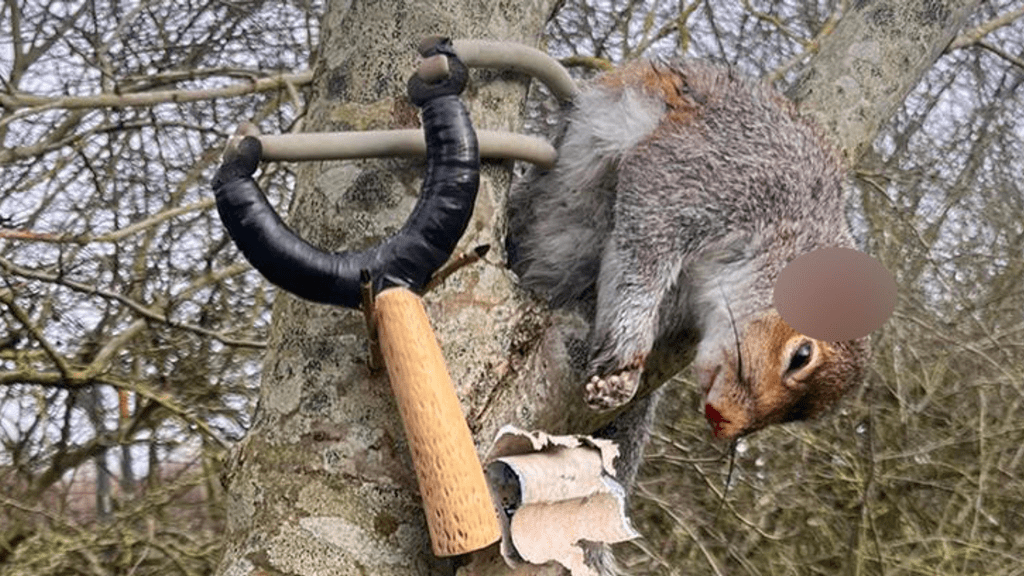
Sky News has discovered nearly 500 members of catapult groups on WhatsApp, in which more than 350 photos and videos have been shared of animals that have been killed or wounded with the weapons.
The RSPCA described the material in the groups as “horrendous” and said it was an “emerging trend”.
The “sick” attacks have prompted calls for a change in the law as catapults are not classed as an illegal weapon and can be bought and carried legally.
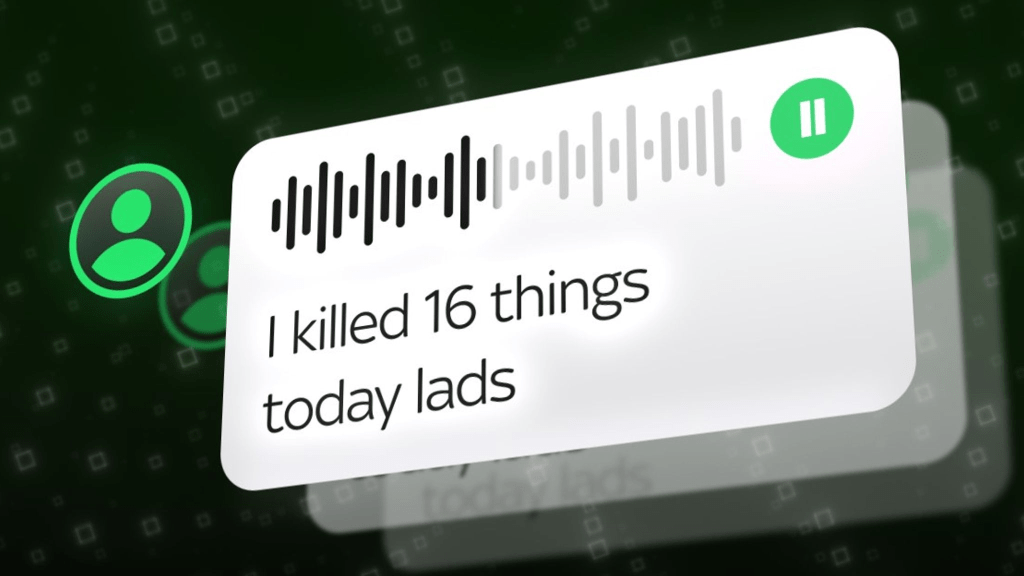
The animals targeted include pigs, deer, pigeons, foxes, squirrels, pheasants, rabbits, geese and ducks – with one charity saying it had seen an “exponential” rise in birds with catapult injuries.
The Swan Sanctuary, which rescues swans and other waterfowl in Shepperton, has around 20 birds in its care with catapult injuries.
Volunteer Danni Rogers says the “devastating” wounds are mostly to the birds’ heads and necks as a result of “pure kill shots”.
X-ray images show ball bearings lodged in the birds, as well as shattered bones from the impact of catapult shots.
Describing the “life-changing, death-causing” injuries, Mr Rogers said he had seen “fractures to facial areas, eyes exploding and windpipes bursting”.
“I get emotional about seeing animals in distress,” he told Sky News.
“(They’re) being targeted for no other reason than just pure evil fun.”
In one incident, Mr Rogers said he was rescuing a swan with catapult injuries when he was made aware that children with catapults were shooting in the area.
He later discovered a dead pigeon – freshly killed by a catapult – next to his vehicle, which had been left as a “trophy”.
Sky News has discovered 489 members – including young children, teenagers and some young adults – across 11 catapult groups on WhatsApp.
In one video shared on a group, a deer lies twitching on the ground, severely injured with a head wound, having just been shot with a catapult by a child.
The young person who attacked the deer then stands over the animal while bringing a hand-held catapult in front of the camera for viewers to see.
Watching it on the floor, the child then kicks the deer, causing it to writhe around in visible distress.
In another video, two teenagers have shot a fox, with one heard saying: “Okay boys… steel shot in the head.” The catapult is then held up to the camera, showing the weapon used to kill the animal.
In one video, a teenager holds up a catapult while filming a Canada goose drowning, having shot it from across a pond. While filming the severely injured bird, the attacker is heard celebrating.
“One up for the new catapult, big Canadian goose, dead as a dodo. Get up!” he says.
Separate footage shows a child of primary school age filming themselves picking up a heavily bleeding squirrel while saying: “Look at that boys, it’s a ball bearing for ya… have that you prick.”
The material in the WhatsApp groups also includes voice notes where children are heard describing their kills.
One boy says in a voice note: “Shot him straight in the head boys, smack bang in the skull, not one bit of kick, nothing, no little flinch before he died.”
In another voice note, a boy says: “Goes straight through the rabbit’s head.”
In a separate voice note, one boy says: “I killed 16 things today lads.”
Geoff Edmond, the RSPCA’s lead wildlife officer, said the catapult killings were an “emerging trend” and children involved were “deliberately and intentionally targeting” animals “for sport”.
“We’re seeing more and more injured animals being reported to us that are being hit by catapults,” he said.
Police in London and Essex were also aware of increasing numbers of incidents, Mr Edmond added.
While it is not illegal to buy or carry a catapult, when it comes to shooting with one, the law has a number of different pieces of legislation protecting animals.
The first is the Animal Welfare Act 2006, which says that causing an animal unnecessary suffering is an offence.

In the material shared on WhatsApp, a number of the animals are abused while still alive, which again is illegal under the Animal Welfare Act.
Another piece of relevant legislation is the Wildlife and Countryside Act 1981, which protects wild birds and some animals in England and Wales.
This act lists weapons that a person must not use to kill an animal, but catapults are not included in that list.
Henry Smith, the vice chair of the All Party Parliamentary Group for Animal Welfare, says parliament urgently needs to look at changing the legislation.
The MP believes the government should look at ensuring there is a “criminal sanction” for “those who use catapults as a weapon to inflict injury and suffering” and look at restricting sales to under-18s.
Catapults are readily available to buy online, including on websites like eBay and Amazon.
In the catapult groups, young people also trade, sell and even make them by hand, while some people even promote knives.
Regards Mark
The same article with photos:

Please sign, support and crosspost this petition.
SIGN: Stop Horrifying Trend of ‘Catapult’ Animal Killing on WhatsApp (ladyfreethinker.org)

Italian fashion company Moncler Group – which owns Moncler and Stone Island – is tied to horrific duck slaughter.

The brand is connected to duck farms and abattoirs in Vietnam that have been exposed by PETA. As seen in the footage, workers mercilessly stab ducks, slit their throats, and cut their feet off while they’re still alive.
Demand That Moncler Group Stop Selling Down
Demand That Moncler Group Stop Selling Down | PETA Australia
Ducks and geese feel fear and pain, just as humans do. They’re happiest with their families and don’t want to spend their life imprisoned on a filthy farm.
A growing number of clothing companies now use entirely animal-free fabrics to create top-notch fashion, and many companies – including Napapijri and ASOS – have ditched feathers. Moncler Group must do the same.
Please use PETA’s new action alert to urge Moncler Group to spare birds suffering and a painful death by banning down.

TAKE ACTION HERE:
Demand That Moncler Group Stop Selling Down | PETA Australia
Thanks for all you do for birds.
Sincerely,
PETA
Regards Mark

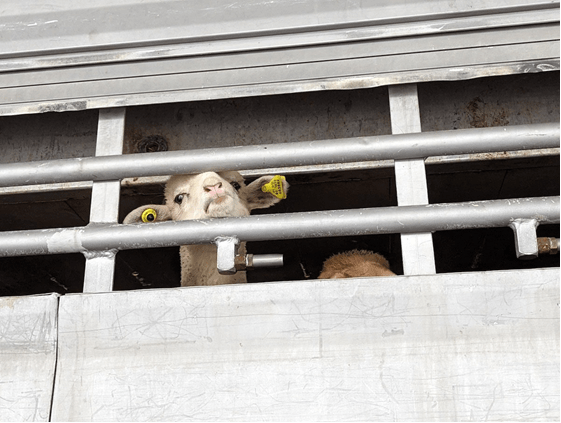
Photo – EA.
This is the disgusting suffering to produce an Easter roast.
I am publishing this post as you know, getting a ban on live animal transport has been a personal goal of mine for the last 35 years.
It was sent to me by our campaigner friends at Essere Animali; who are based in Italy.

I wish to help them as much as possible by asking you please to support their petition – the link is provided in this article.
Also, please watch the investigation video provided in their first link below.
This is the disgusting suffering to produce an Easter roast.
Regards Mark
Click here to access all of our Live transport posts:
Search Results for “live animal transport” – World Animals Voice
You can see more about animals carried by sea in our post:
——————————–
From Essere Animali
Lamb transports: we have documented more suffering and violations
Watch the investigation video be clicking here:
Sign for a revision of the legislation on animal transport (essereanimali.org)
As has been customary for some years now, a few days before Easter, our investigative team returned to the motorways on the border between Italy and Slovenia to monitor trucks loaded with lambs arriving from Eastern Europe, heading to slaughterhouses in Tuscany, Lazio and Puglia.
On the monitored vehicles, coming from Hungary, Romania, Slovakia and Poland, several problems and violations of the rules were once again found: overcrowding, presence of unweaned animals on vehicles not suitable to feed them and transported for a longer period than that required by the regulations, ventilation and watering systems not working, inadequate or unreachable drinking bottles for all lambs, insufficient space above the animals’ heads to be able to travel in a natural position.
And all this for long and exhausting journeys, which can last up to 30 hours.
This activity was carried out in collaboration with Animals’ Angels, Enpa and the Animal Welfare Foundation.
Of the 20 trucks targeted by the associations, 8 were checked by the police and 4 received fines of thousands of euros.
Already on the first day, a truck was fined €6,500 due to malfunctioning ventilation and drinking system and document irregularities. The situation was such that the truck was not fit to continue its journey.
The revision of Council Regulation (EC) No 1/2005 of 22 December 2004 “on the protection of animals during transport and related operations” is a unique opportunity for the European Commission and the EU co-legislators to ensure greater and better protection of animals and to take action on the most serious issues in order to spare animals avoidable suffering.
That is why we ask:
an immediate ban on the export of live farmed animals to third countries;
limiting travel times for the transport of live animals to a maximum of eight hours and 4 hours for poultry and rabbits (which must be transported in specific containers);
the prohibition of the transport of animals:
• unweaned;
• in an advanced state of pregnancy (who have exceeded 40% of the gestation state);
• at the end of their productive life;
the prohibition of the transport of live animals if the expected outside temperatures are below 5°C or above 25°C, subject to clear definition of the following parameters:
• specific species – and categories – conditions for the suitability of animals for transport;
• minimum and maximum outdoor temperatures;
• availability of space;
• availability and method of administration of food and water;
to limit intra-EU maritime transport as much as possible and to allow it only where it is strictly necessary, with the suitability of the vessels approved by an EU Authority that verifies compliance with strict technical and mandatory requirements;
to develop a clear definition of ‘journey time’, which is to be understood as the time that elapses from the ‘start of the journey’ to the ‘end of the journey’, including the loading and unloading of animals. In the case of sea transport, the “journey time” includes the time that the animals spend along the road journey from the farm to the port and from the port to the “final destination”, as well as the time that the animals spend on the boats and during embarkation and disembarkation operations;
the reduction and replacement of the transport of live animals with that of meat and carcasses, and seeds and embryos, as also recommended by FVE, OIE, and EFSA.
We also call for stricter enforcement of EU legislation, which must also be accompanied by more controls and inspections and strict penalties for infringements.
Continue reading at:
Sign for a revision of the legislation on animal transport (essereanimali.org)
Inside another truck there was a lamb unable to stand on its legs, which was entrusted to the associations. The lamb is now under the care of a veterinarian. Again, the truck was not fit to continue its journey.
In December 2023, the European Commission published a proposal to revise the legislation on the transport of live animals. The European elections in June are a unique opportunity to continue the work: it is crucial that the new Parliament and the new Commission commit to better regulation and controls.
It is equally important that the Ministry of Health in Italy is ready to give precise indications that make controls more efficient throughout the country and that our government works with other member states to improve legislation at European level.
And this umpteenth investigation, with the sanctions that have arisen and the great media attention it is generating, is one more tool to make the problem visible and bring it once again to the tables of the institutions!
Ps: this transport monitoring activity has once again brought to light a very serious situation for animals. A serious reform of this practice by the EU is urgently needed. Ask yourself:
From all of us; thank you for your support.

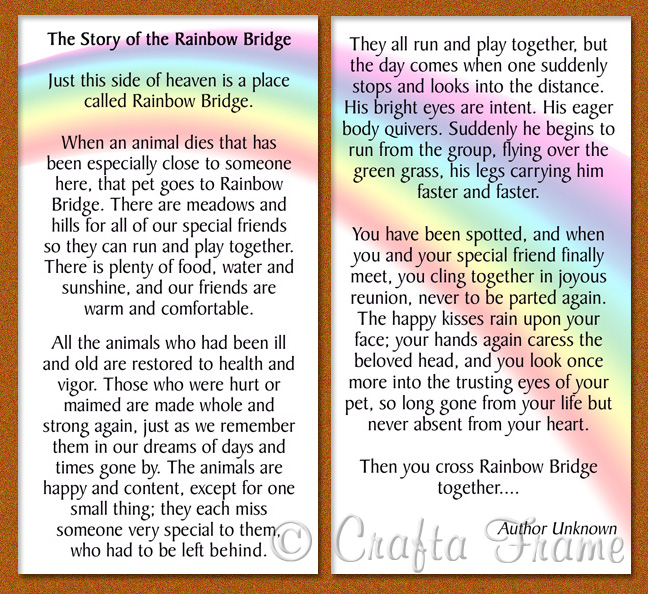

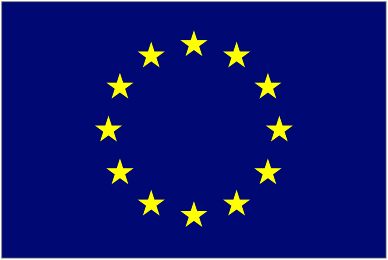
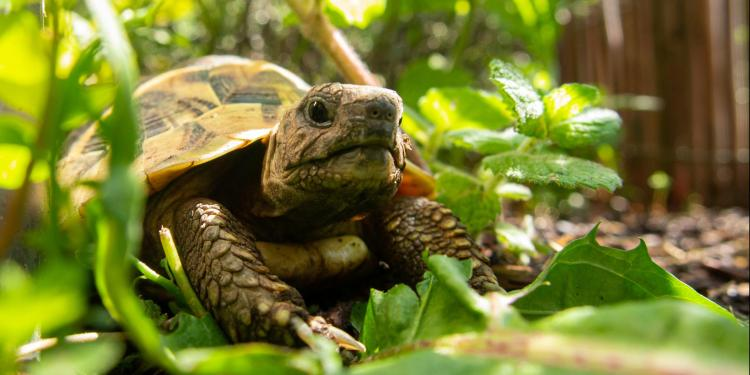
Image – Act4Wildlife
28 March 2024
On 26 March the Council of the EU endorsed the revised Environmental Crime Directive, strengthening penalties for behaviour negatively impacting the environment and wild animals. The Directive provides welcomed improvements to the current legal framework, but calls for stronger and more specific measures to be adopted by Member States when transposing the legislation.
Clarification of offences regarding animals
While the previous Directive addressed poaching and illegal trade of wild animals as offences, the new legislation provides additional information on their scope. Online trade is now expressly covered. The legislation also gives additional information on the species covered, detailing the lists of threatened species that should be considered. In line with the previous Directive, the law provides an exemption when the conduct concerns “a negligible quantity of specimens”. However, the new text specifies that elements must be taken into account when assessing this condition, including the conservation status of the species. We therefore ask Member States to enforce strict sanctions for offences concerning species threatened by wildlife trade or other circumstances affecting their populations, even when such offences concern only one or a few individuals.
Introduction of specific sanctions
The previous Directive provides minimal guidance on the penalties that should sanction the offences listed, providing that they must be “effective, proportionate and dissuasive”. The revised Directive is more specific, introducing sanctions for both natural and legal persons. In practice, Member States will have to ensure that the maximum sanctions for offences related to poaching and trading of animals are no less than three years imprisonment for natural persons and a fine corresponding to 3% of the total worldwide turnover for legal persons. These sanctions remain insufficient in light of the negative impact such behaviour has on biodiversity, conservation and animal welfare, but it is a significant step forward.
Management of confiscated animals
Although not legally binding, one recital of the legislation provides that Member States should ensure that frozen and confiscated proceeds and instrumentalities are appropriately managed, in line with their nature. In other words, Member States are encouraged to adopt further provisions to guarantee the welfare of confiscated animals. We call on Member States to further consider confiscated assets to cover the costs for the maintenance of these animals in appropriate conditions, at minimum during the proceedings.
Besides these improvements, we highlight the ambitions of the new Directive to tackle offences related to the environment as a whole. We hope that this revised framework will significantly deter harmful behaviour resulting in reduced degradation, improved environmental health and better living conditions for wild animals.
Regards Mark
We are not permitted to reproduce articles from the Guardian; as they have threatened legal action before; even when we reproduce unchanged articles and always give the article link ! – so all I can do now is supply the link and leave it with you to do the rest if you wish.
Eyes in the sky: why drones are ‘beyond effective’ for animal rights campaigners around the world
Regards Mark

Above – Me and Trev – old days campaigning on the streets !
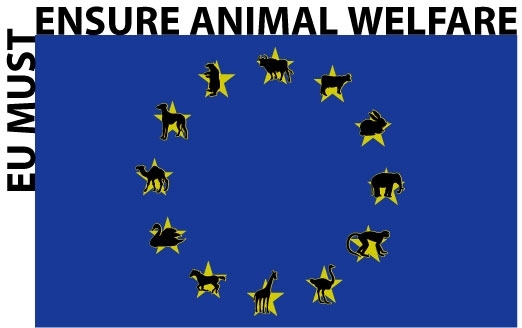
Despite a clear commitment from the European Commission in 2021 to deliver proposals to ban caged animal farming by the end of 2023, it has failed to deliver on its promise.
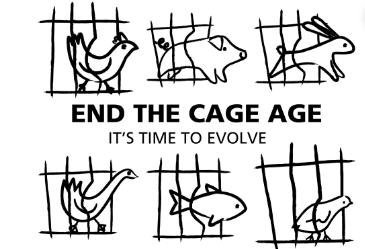
As a result, last week, the End the Cage Age Citizens’ Committee — a group of seven EU citizens who started the ECI — launched a ground-breaking legal action against the European Commission for failing to act.
Funded by Compassion in World Farming, this historic case could result in the Commission being compelled by the court to set out a clear timescale for the legislation.
It is the first legal action to hold the Commission to account over its failure to act on an ECI — an important test case for both animal welfare and democracy.
Despite overwhelming support, animals continue to suffer
Back in 2021, Compassion in World Farming, along with millions of European citizens, celebrated the news of the European Commission’s clear commitment.
It followed the first ever successful European Citizens’ Initiative (ECI) to ‘End the Cage Age’, which was signed by an overwhelming 1.4 million EU citizens and supported by a coalition of 170 NGOs led by Compassion.
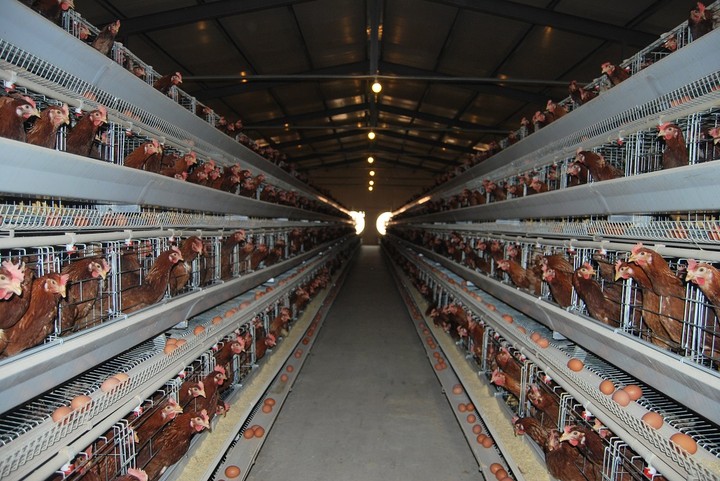
ECIs were introduced with the specific purpose of giving citizens more influence over EU decision making and the tool is described by the European Commission as “a way for you and other Europeans to take an active part in EU policy-making”.
Pregnant sows are forced to nurse their piglets in crates so small they can’t even turn around; chickens can’t spread their wings, and along with countless rabbits and quail will spend all their lives in barren cages.
In October last year, the European Commission’s own Eurobarometer survey revealed that an overwhelming nine out of ten, or 89% of EU citizens — around 400 million people — believe animals should not be farmed in individual cages.

The Commission’s own scientific advisers, the European Food Safety Authority, have also backed the phasing out of cages on welfare grounds for pigs, dairy calves, laying hens, ducks, quail and rabbits.
Meanwhile, more than 300 million pigs, hens, rabbits, ducks, quail and geese continue to suffer confinement and misery in cages across the EU each year.
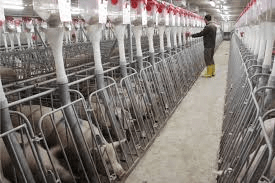
Pregnant sows are forced to nurse their piglets in crates so small they can’t even turn around; chickens can’t spread their wings, and along with countless rabbits and quail will spend all their lives in barren cages.
Ducks and geese are caged for force-feeding to produce foie gras.
How did the ban get derailed?
In September, we hoped to hear European Commission President Ursula von der Leyen set out the plans to deliver the ban in her State of the Union speech.
Instead, what we heard were words that echoed the letter she received from the farming federation Copa Cogeca. It seems she caved into pressure from the agriculture lobby to put the ban on hold.
Together with my colleagues in End the Cage Age Citizens’ Committee, we have made repeated requests to meet with the president on behalf of the millions of EU citizens who support the cages ban, without success.
The cages ban — part of the Commission’s excellent Farm to Fork strategy to meet climate and nature obligations — also has the chance to provide wider environmental and socio-economic benefits.
Yet, last October, an investigation from Lighthouse Reports revealed that “an increasingly assertive meat industry helped derail a historic democratic demand to improve animal welfare standards in the EU”.
We simply cannot allow the powerful farming lobby to have preferential access to decision-makers to influence them to backtrack on promises they have made to citizens.
This is particularly unjust when those citizens have followed the very process designed to give them more influence over EU decision-making. As a result of this injustice, both animal welfare and democracy are now at stake.
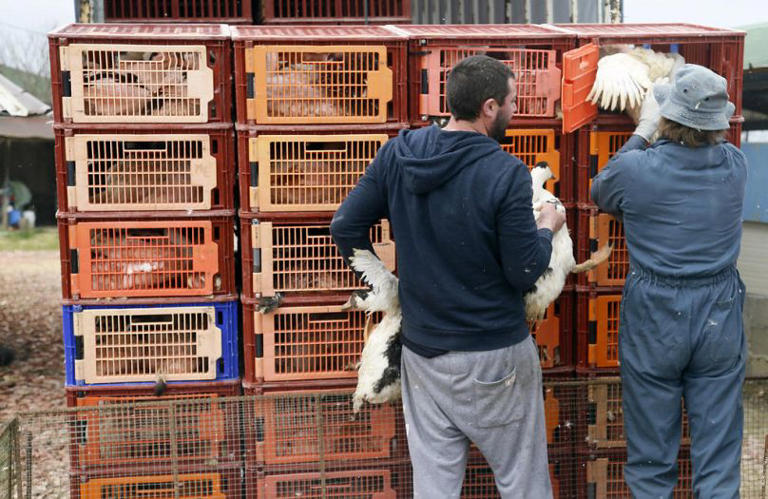
Above – Duck breeders load ducks into a truck to bring them to a slaughterhouse at a poultry farm in Saint Aubin, May 2017 AP Photo/Bob Edme© Provided by Euronews (English)

Above – walk past a truck with live chickens on sale in an informal market in central Athens, May 2012 Thanassis Stavrakis/AP© Provided by Euronews (English)
We can’t wait any longer
There is simply no justification for any further delay. All the appropriate preparation, assessments and consultations have already been carried out by Commission officials and the proposals make strong provision for financial support to help farmers transition to cage-free systems during a phase-out.
This measure is backed by the animal welfare movement who believe public subsidies should be redirected to reward farmers for transitioning to high welfare and nature-positive systems that benefit society.
Pursuing legal action is not a choice we have taken lightly, but we cannot allow the European Commission to break its promises to citizens, making a mockery of democracy in the process.
The cages ban — part of the Commission’s excellent Farm to Fork strategy to meet climate and nature obligations — also has the chance to provide wider environmental and socio-economic benefits.
A report from the Institute for European Environmental Policy found that the ban would have greater sustainability benefits.
These art installations reveal the sad truth about keeping animals in cages
European Parliament overwhelmingly backs ban on caged animal farming
In addition, it concluded that the current discrepancy between legislation in member states was leading to uneven market conditions across the EU, and that a level playing field should be created.
Democracy is not to be mocked
Pursuing legal action is not a choice we have taken lightly, but we cannot allow the European Commission to break its promises to citizens, making a mockery of democracy in the process.
Most importantly, we cannot stand by silently while millions of animals continue to suffer in cages. Caving into the big agriculture lobby and continuing to use taxpayer funds to prop up this damaging sector is not helping citizens, or the majority of small-to-medium-scale farmers.
The hope is that this ground-breaking legal action — launched on behalf of millions of supportive EU citizens as well as the voiceless 300 million animals still suffering every day in cages — will speed up the ban and ensure that every cage is an empty cage.
We will not rest until we end the Cage Age.
Olga Kikou is Head of Compassion in World Farming EU, the leading farm animal welfare organisation dedicated to ending factory farming and achieving humane and sustainable food production.
Full article and pictures at:
To protect caged animals, we are suing the European Commission (msn.com)
We are 110% behind the actions now taken;
Regards Mark
More reading https://www.ciwf.org.uk/our-campaigns/end-the-cage-age/

21 March 2024
A hunt in East Yorkshire and the volunteers who monitor it say tension between the two groups is at an all-time high.
Fox-hunting was banned in 2004 but the Holderness Hunt, like many hunts across the country, mimics the traditional countryside sport with the legal activity of trail-hunting. This involves laying an animal-based scent trail for their hounds to chase.
A spokesman for a group called Hull Wildlife Protectors claims trail-hunting is a “smokescreen” to mask the killing of wild animals with dogs. A spokesman for the Holderness Hunt, based near Beverley, says “accidents will happen” during trail-hunting, which can lead to the death of wildlife.
Humberside Police has been approached for comment.
‘It can make you quite anxious’
Leo from Hull Wildlife Protectors did not want to give his full name. He said “it is a necessity” that members watch and record the Holderness Hunt every time they meet “to monitor for any wildlife crimes”.
The volunteer said his group has reported three incidents of wildlife crime to Humberside Police this year and that two are still being investigated.
According to the Holderness Hunt, none of its members has been charged with any wildlife crimes this year.
Tom Wright, huntsman for the Holderness Hunt, said the monitoring group’s behaviour amounts to trespass and harassment.
He described how masked strangers sit in cars outside the kennels where he works, sometimes at 03.30 GMT.
“It can make you quite anxious,” said Mr Wright. “You never know who is behind the mask.”
Hull Wildlife Protectors admit they watch the kennels but said they have to because Holderness Hunt refuses to share details of when its trail-hunting events start.
A spokesperson for the group said only a minority of its members wear masks to conceal their identities.
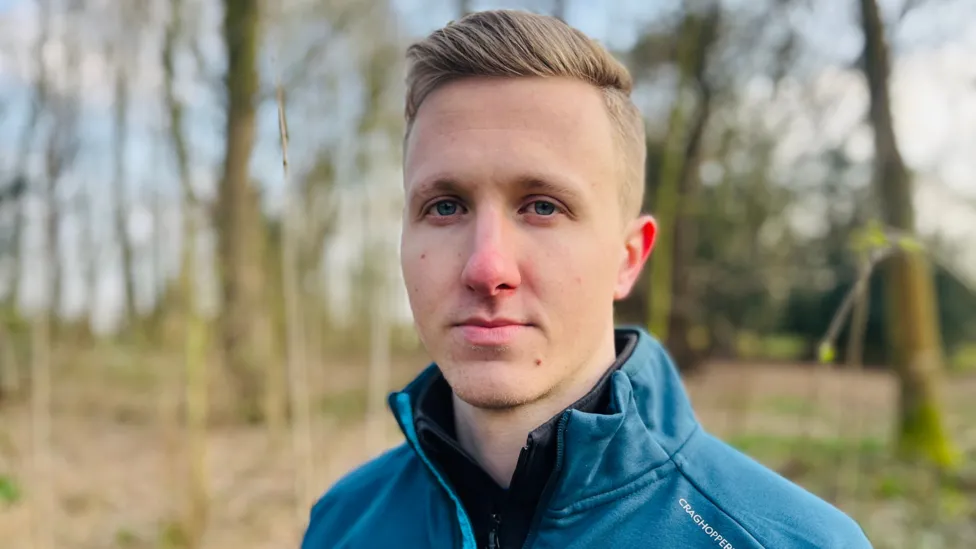
Leo from Hull Wildlife Protectors said it is a non-violent group
Leo said intimidation goes both ways. He says members of the hunt have told him that “they know who I am, my name, where I live”.
A spokesperson for Holderness Hunt agrees that tension between the two groups is growing.
‘Insufficient evidence’
The BBC has seen footage of wild animals being killed during trail-hunts.
In an incident from 2023 Holderness Hunt’s hounds clearly kill a fox that diverted their attention from the pre-laid scent trail.
The BBC has seen an email from Humberside Police confirming that it investigated the incident but that “no further action” would be taken.
In the email Humberside Police explains that this is because of “insufficient evidence” that the kill was “intentional”.
Leo said this left the group “deflated” and the “lacklustre” law has “many loopholes” that need closing.
Last year a senior police officer said the law on fox-hunting was not working.
Ch Supt Matt Longman, the National Police Chiefs’ Council lead on fox-hunting, also labelled trail-hunting a “smokescreen” for the illegal persecution of animals.
He was speaking at the launch of a coalition against illegal hunting led by the League Against Cruel Sports and backed by more than 30 charities including the RSPCA.
William Bethell, master of the Holderness Hunt, said hunting is “stronger than the church” for some in the countryside. He said it is important that it continues because many rural jobs rely on it.
Reproduced from BBC article – click here:
Fox-hunting: Trail hunt tension hits new levels in East Yorkshire – BBC News
Regards Mark

‘Just a nip to the neck by the hounds‘ – this IS foxhunting in its reality – Photo Mark WAV.